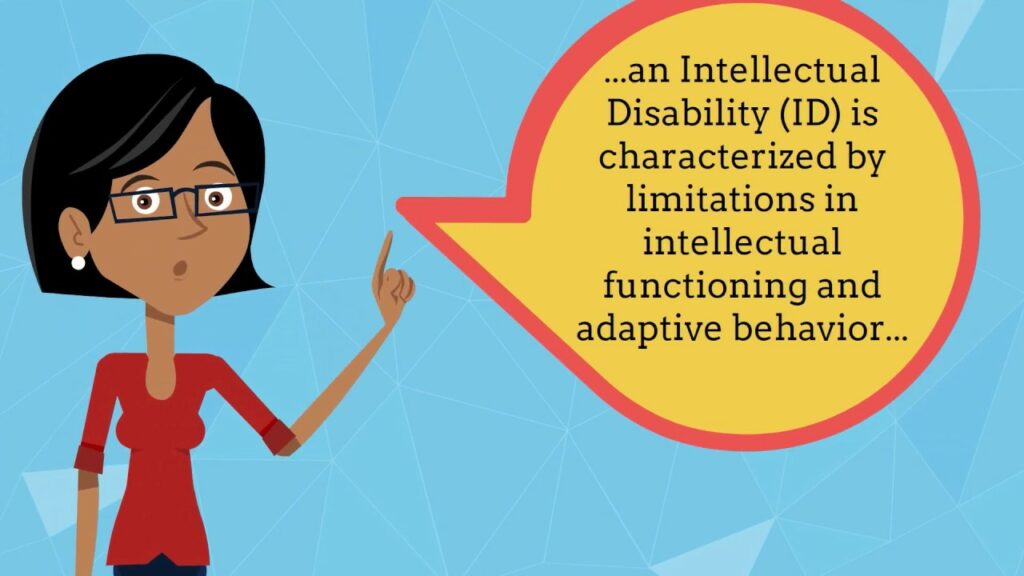It is important for parents and educators alike to understand what intellectual disability (or being intellectually disabled) means if they are in contact with someone who has an ID. So they can work together to help promote this person’s independence. In this blog post, we will discuss what is intellectual disability, its types and causes, its diagnosis, and more.
Contents
- 1 What Is Intellectual Disability?
- 2 Types Of Intellectual Disability
- 3 Early Signs Of Intellectual Disability
- 4 Diagnosing Intellectual Disability
- 5 What Are The Causes Of Intellectual Disability?
- 6 Treatment Of Intellectual Disability
- 7 Tips
- 8 Education For People With Intellectual Disability
- 9 Inclusive Education And Intellectual Disability
- 10 Stigma And Discrimination Associated With Intellectual Disability
- 11 Professionals Who Work For Intellectual Disability
- 12 Professionals’ View On Intellectual Disability
- 13 Conclusion
What Is Intellectual Disability?
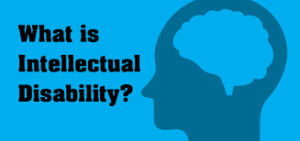
Intellectual disability (ID) is a lifelong condition that affects the way your child thinks, learns, and interacts with others. It is different from learning disabilities because it has to do with the intelligence quotient (IQ). This means that your child’s IQ score falls between 70-75 or below on an accepted scale of intellectual ability.
In other words, it is used to refer/describe an individual who has limitations in both cognitive and social aspects of development. The concept refers to the inability, due to intellectual limitations or impairment, of one’s ability to live independently without supervision by others (or support from services such as care systems). Individuals with ID often need assistance with self-care, mobility, communication, and social skills.
Types Of Intellectual Disability
There are two types of intellectual disability. These include:
Mild ID
This type is generally identified in people who have an IQ of between 50 and 70 (with severe or profound mental retardation having a lower range, such as 35 to 49). People with mild disabilities can often participate effectively in many aspects of society, though they may require assistance with time management, social skills, and communication.
Moderate to Severe ID
This type is generally identified in people who have an IQ score of between 25 and 49 (with profound mental retardation having a lower range). People with this level of disability often need significant support services throughout their lives; however, some people may be able to learn some self-help skills and maintain their homes with limited assistance.
Early Signs Of Intellectual Disability
Intellectual disability can be caused by a brain injury, illness, or other medical condition your child was born with. They may have certain physical features such as small head size and an upward slant to their eyes that you could notice at birth or when they are a young infant.
Though the specific signs of ID will vary widely depending on how severe it is, several common early signs can indicate disability in children. These include:
- Delays in language development (such as not starting to talk until after 18 months),
- Difficulty with problem-solving and abstract thinking,
- Being easily distracted or hyperactive,
- Having poor coordination and balance,
- Problems with self-care skills (such as toileting or dressing oneself),
- Difficulty interacting socially with others, and displaying repetitive behaviors
NOTE: It is important for parents of children who have an intellectual disability to have them evaluated by a team of professionals who can give an accurate diagnosis. This will help you get the best possible care for your child.
Related and co-occurring conditions
People with intellectual disabilities often have other related conditions (such as ADHD or autism spectrum disorder) that need to be treated along with the ID. Additionally, people with ID are more likely to experience mental health conditions such as depression or anxiety.
Intellectual Disability And Autism Spectrum Disorder
Intellectual disability and autism spectrum disorder (ASD) are often diagnosed together because they share certain symptoms. People with ASD may have difficulty interacting socially, communicating verbally or nonverbally, playing imaginatively, tolerating changes in routine, and learning.
Treatment For Intellectual Disability And Autism Spectrum Disorder
It is important to work closely with your child’s healthcare team if they have both intellectual disability and ASD because the symptoms of these disorders may overlap in certain ways. With therapy, education, medication, or a combination of therapies, most people with either condition can live happy and healthy lives.
Diagnosing Intellectual Disability

Intellectual disability is diagnosed by a team of specialists who look at a person’s overall development and IQ score. To be diagnosed with ID, a person must have an IQ score of below 70 and significant limitations in two or more areas of development (such as communication, social skills, self-care, etc.).
Which Areas Are Considered In Diagnosis?
To make a diagnosis, the specialists will look closely at each area of development to determine if it is significantly impaired for that person. Areas that are considered include:
Intellectual Functioning
This refers to how well someone can think abstractly and logically; however, this does not mean IQ score alone should be used as a measure of intelligence because diagnostic tools such as the adaptive behavior scale also play a role.
Motor Skills
This includes things such as balance, coordination, and fine and gross motor skills.
Communication
This refers to both verbal and nonverbal abilities, such as understanding others or using symbols to communicate.
Social Skills
This includes how well someone interacts with others, their ability to make and keep friends, to behave appropriately in social situations, etc.
Self-Help Skills
This refers to someone’s ability to take care of their own needs (such as eating or dressing).
Adaptive Behavior
This includes things such as how well one can complete tasks daily by managing money, following rules for safety, using transportation, etc.
What Are The Causes Of Intellectual Disability?
There are many different causes of intellectual disability, and in most cases the cause is unknown. Some common causes include:
Genetic Disorders
Many genetic disorders can lead to intellectual disability, such as Down syndrome or Fragile X syndrome.
Environmental Factors
Problems during pregnancy such as malnutrition, infections, or exposure to toxins can lead to intellectual disability.
Premature Birth
Babies born prematurely often have difficulties with neurological development that can lead to intellectual disability.
Brain Damage
Damage to the brain caused by a head injury, stroke, or other illness can lead to intellectual disability.
NOTE: Problems during pregnancy that lead to low birth weight; infections during the mother’s pregnancy, such as rubella; problems during childbirth that lead to oxygen deprivation in the brain stand chances of resulting in intellectual disability.
Treatment Of Intellectual Disability
Treatment for intellectual disability may include:
- Education and therapies aimed at helping the person learn new skills
- Supportive services to help the person live independently
- Medication to treat any co-occurring conditions, such as ADHD or depression
The most effective treatment for intellectual disability is often a combination of therapies tailored to a person (such as speech therapy or occupational therapy).
Therapies Used To Treat Intellectual Disability
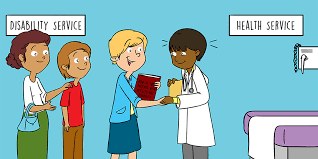
The type of therapy used to treat intellectual disability will depend on the area(s) that are most significantly impaired. Some common therapies include:
Speech Therapy
This helps with communication skills, such as speaking clearly and using gestures or signs to communicate.
Occupational Therapy
This helps build self-care abilities (such as dressing or bathing), fine motor skills, and task completion.
Behavioral Therapy
This helps improve social skills, problem-solving skills, and anger management.
Psychotherapy
This can help address any emotional issues that may be contributing to the person’s behavior.
Skills To Be Taught To People With Intellectual Disability
People with Intellectual Disability can be taught many different skills throughout their lives, including:
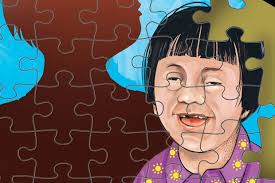
- Managing money;
- Following rules for safety;
- Using transportation and public transit systems;
- Taking care of personal hygiene and grooming (i.e., bathing);
- Managing basic household tasks such as cooking or cleaning house.
NOTE: Though many people with ID require some level of support throughout their lives, there is no one-size-fits-all solution and many people can live relatively independent lives.
Tips
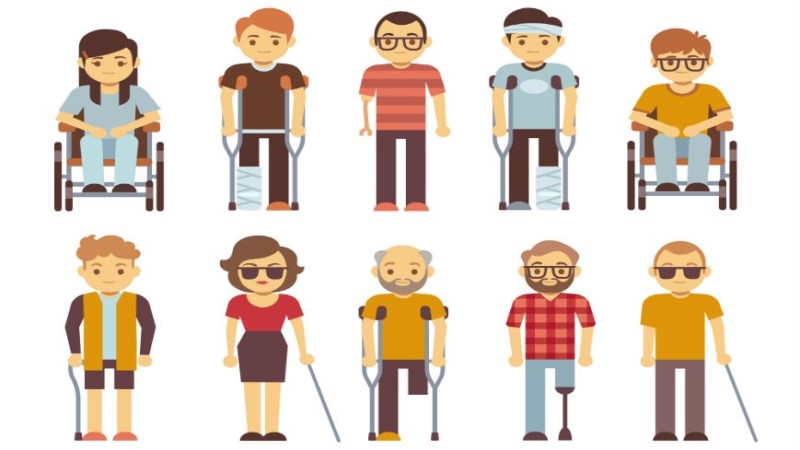
Tips For Parents Of Children With Intellectual Disability
There are many ways to help your child with an intellectual disability succeed, including:
Early Intervention Services
This is the case when children under age three receive special services that can address developmental delays or disabilities. These may include physical therapy, occupational therapy, speech-language pathology services, and more. It also includes developmental screenings to determine if a child is at risk for having an intellectual disability.
School-Based Services
Children with intellectual disabilities often benefit from educational programs offered in the school system. These can include special education services or other types of support such as occupational and physical therapy, speech pathology, and social work services.
Community-Based Services
In addition to services offered in a school or clinic setting, community-based services provide many opportunities for people with intellectual disabilities. These include programs that offer job training, social activities, and housing.
Respite Care
Respite care is important for parents of children with intellectual disabilities because it provides a break from the daily responsibilities of caregiving. Parents can take a break for a few hours, overnight, or even an entire weekend while their child is under care by someone else.
Tips For Teachers Of Children With Intellectual Disability
Teachers play an important role in helping children with an intellectual disability succeed throughout the school years and beyond.
- To start, teachers should make sure that all children in the classroom get equal treatment, regardless of intellectual ability.
- It is also important to create a positive learning environment where students feel comfortable making mistakes and taking risks.
In addition, here are a few more tips for teachers:
Understand The IEP
The Individualized Education Program (IEP) is a document that outlines a student’s specific academic, social and behavioral needs. You should familiarize yourself with the IEP so you can better understand how to teach them effectively.
Create A Positive Learning Environment
Teachers need to create an environment where students feel safe asking questions or making mistakes without fear of ridicule from their peers. This will help encourage a positive learning environment, which is especially important for children with intellectual disabilities.
Tailor The Curriculum
Many teachers use a general education curriculum that may not be appropriate for students with special needs. You can ask the parents or guardians about their child’s interests and how you might integrate this information into your teaching approach to make it more effective.
Tailoring The Curriculum
The curriculum you use should be tailored to the student’s abilities and needs, rather than using a one-size-fits-all approach that is simply modified for them. This will give your students with intellectual disabilities more opportunities to engage in meaningful learning experiences at their level of development, which will help them feel more comfortable and confident as they learn.
Related Tips
If you think someone may have Intellectual Disability, look for these signs:
- Difficulty learning new things or retaining information
- Problems with balance, coordination, and fine and gross motor skills
- Difficulty communicating, both verbally and nonverbally
- Trouble interacting socially, making friends, or behaving appropriately in social situations
- Short attention span and prone to easy distraction
- Problems with self-care such as dressing, grooming, or eating
Education For People With Intellectual Disability
People with intellectual disabilities should have access to an education that meets their individual needs. This may mean a special education program in a traditional school setting, or it may mean attending a specialized school for people with intellectual disabilities.
Types Of Schools Available
There are many different types of schools available, so parents should explore their options and find the one that is best suitable for their child’s needs.
Some common types of schools for people with intellectual disabilities include:
Day School For Children With Intellectual Disability
This type of school provides education and therapy to children in a traditional classroom setting. Some may also provide housing, such as an apartment or family home that is generally under the supervision of school staff. This gives students access to support when needed during non-school hours.
Residential School For Children With Intellectual Disability
This type of school provides 24-hour care and education for students. Students live on campus and they have opportunities to participate in activities outside of school, such as work or recreational programs.
Supported Living Arrangement
In a supported living arrangement, the person with an intellectual disability lives independently (either alone or with roommates) and has access to support as needed.
Day Program For Adults With Intellectual Disability
This type of program provides education, job training, and social opportunities for adults in a traditional classroom setting. It may also provide services such as transportation or help to complete tasks at home that the person cannot do on their own.
Inclusive Education And Intellectual Disability

Inclusive education is a method of teaching students with intellectual disabilities alongside their peers as much as possible. This can help them succeed in school and life by developing skills that will be useful later on, such as socializing with friends or learning to complete tasks independently.
There are many reasons why inclusive education is beneficial for students with intellectual disabilities. These include:
- They can learn from their peers and develop social skills
- They can feel included in the classroom and have a sense of belonging
- It can help them improve academically, as they will be in a setting that is more conducive to their learning style
- They can learn to complete tasks independently, which will help them in their future life endeavors.
What You Can Do To Help?
If you want to see inclusive education for students with intellectual disabilities become a reality, there are things you can do to help make this happen:
- Talk to your local school board and let them know that you support inclusive education for this population
- Write a letter to your child’s teacher or school administrators, explaining why you think they should implement inclusion in the classroom. If possible, provide resources that can help teachers learn more about including students with intellectual disabilities.
NOTE: Inclusive education is all about helping students succeed and feel included at school. This method can be very beneficial for students with intellectual disabilities, as it will allow them to learn alongside their peers and improve academically.
Stigma And Discrimination Associated With Intellectual Disability

People with intellectual disabilities are at risk of facing discrimination because the public often does not understand this condition. Some people may think that it is okay to make mean comments or insult someone who has an intellectual disability, but it’s important to remember that their disorder impacts them in many ways and they cannot control how others treat them.
If you know someone with an intellectual disability, it is best to treat them the way you would want someone else to treat your loved one. This means being kind and accepting of their condition. If you are a parent or caregiver for someone with this disorder, encouraging independence will help them learn new skills that can improve their quality of life.
Professionals Who Work For Intellectual Disability

There are many different treatments available to people with intellectual disabilities, so parents and caregivers need to work closely with their child’s healthcare team. Some professionals may include:
Psychologists
A psychologist helps your child develop coping skills that will help them manage stressors in everyday life. They can also provide strategies for dealing with anxiety or anger management.
Psychiatrists
A psychiatrist helps your child and family understand and treat mental health disorders such as depression or anxiety. They may also prescribe medication to help with symptoms related to intellectual disability if needed.
Occupational Therapist
An occupational therapist can work on fine motor skills, sensory processing difficulties, communication problems, socialization challenges, and self-care skills.
Physical Therapist
A physical therapist can help with motor skill development, balance and coordination issues, and problems with eating or toileting.
Speech-Language Pathologist
A speech-language pathologist can work on language development, communication skills, socialization challenges, swallowing difficulties, and feeding problems.
Professionals’ View On Intellectual Disability
From the professionals’ point of view, intellectual disability is a condition that affects a person’s ability to think, learn, and problem solve. It can be a consequence of injury or illness early in life, or it may be something that a person is born with.
There are many different types of intellectual disability, so it is important to get an accurate diagnosis. This will help professionals create a treatment plan that meets the individual’s needs.
Conclusion
Intellectual disability is a condition that affects the brain, so it has many different symptoms and causes. The treatment will depend on the individual’s diagnosis, but professionals are available to help with all kinds of needs related to intellectual disability.
If you are looking for affordable Online Counseling MantraCare can help: Book a trial therapy session
